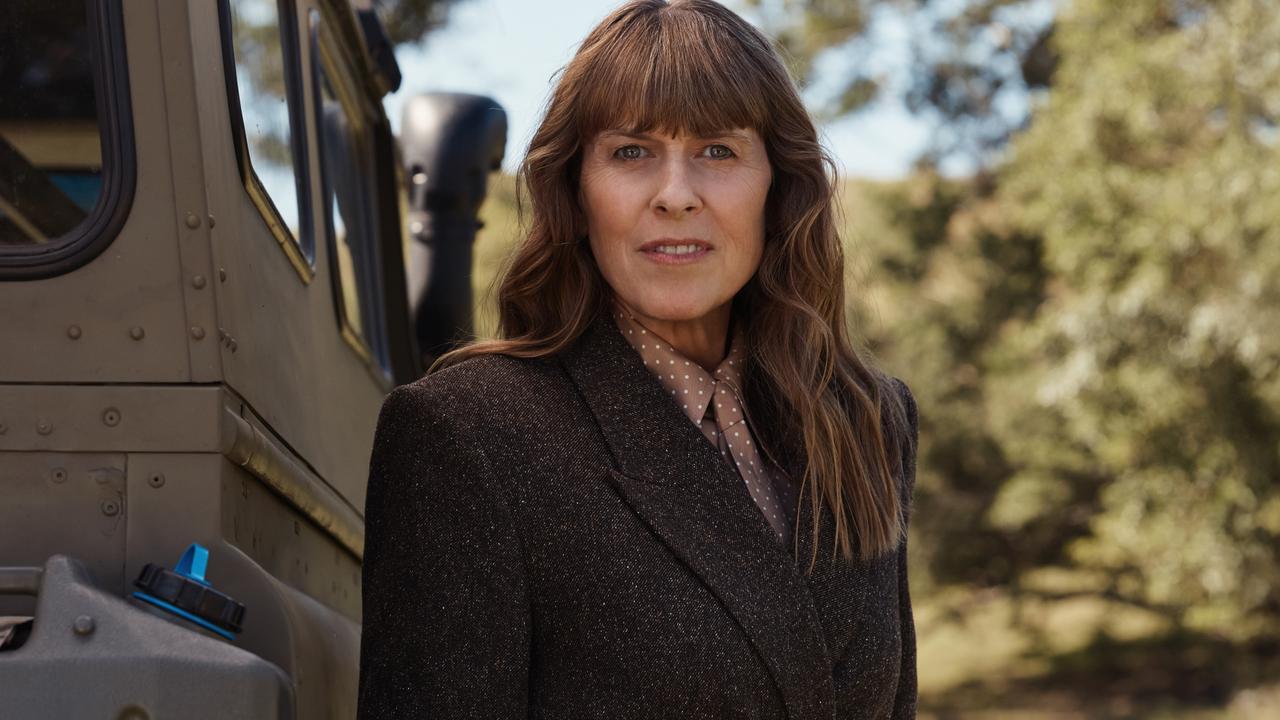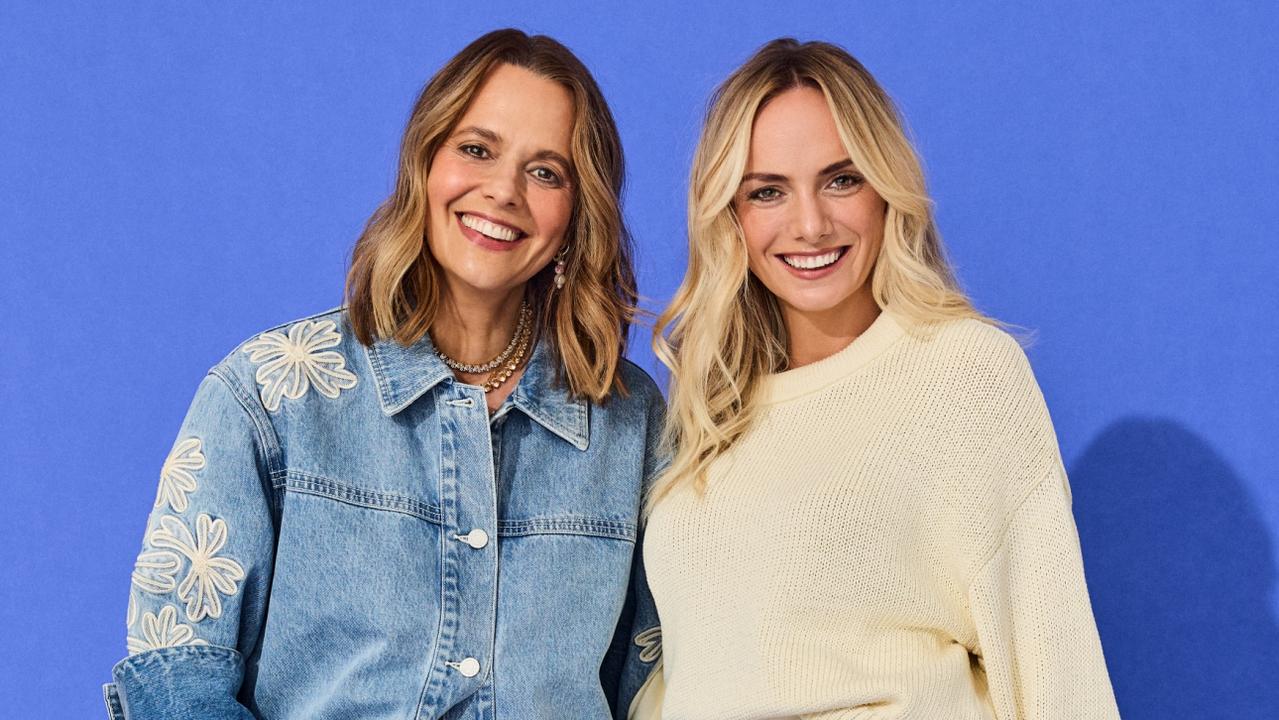Champion surfer Pauline Menczer on homophobia in the sport
An Aussie inspiration to all
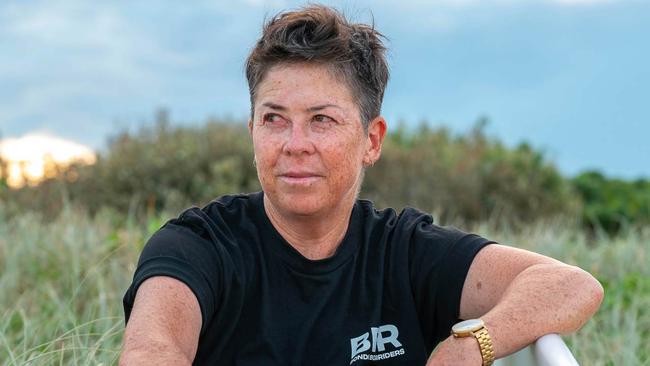
Lifestyle
Don't miss out on the headlines from Lifestyle. Followed categories will be added to My News.
The champion Aussie surfer, trailblazer and advocate on equality, surf culture and why authenticity always wins.
When you were crowned World Champ in 1993, the entire prize pool went to the men’s finalists. You struggled to find sponsors and even slept in comp grandstands because you couldn’t afford a hotel. How does it feel to see pay equality in surfing now?
I’m bummed we didn’t earn money then, but seeing how far it’s come today [for female surfers] makes me really proud. I feel like we fought to show they’re just as deserving [as the male competitors]. There was definitely a special bond between us back then [her contemporaries included Wendy Botha and Pam Burridge], even though we were competitors in the water, because we had to support each other.
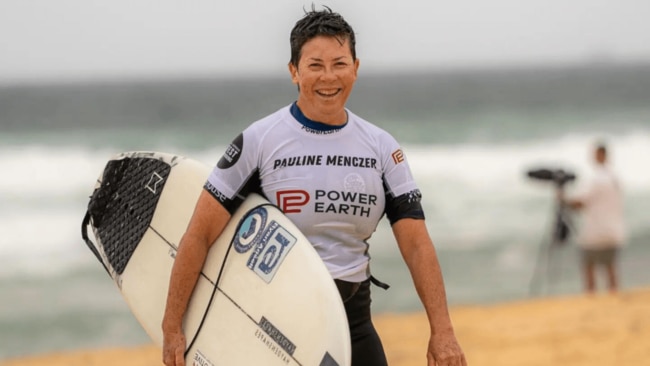
Most people back then didn’t realise you were in severe pain from early-onset arthritis. What gave you the courage to compete through it?
I think only the courageous can become professional athletes because that’s what you need to make it. I definitely needed courage to go out into waves. In the end, the arthritis got me, though – it’s why I retired in 2005. If not, I reckon I would have been like Kelly Slater, never wanting to stop.
That’s not the only monumental challenge you faced: you were raised by a single mum, and copped sexism, homophobia and more. Where does all your resilience come from?
I think I learned it from my mum Grace, who was an incredible woman. She was quiet, but strong and really determined – and resourceful, especially as we didn’t have much money. Can you imagine bringing up two sets of twins on your own? [Menczer’s taxi-driver father was murdered when she was five, she has a twin brother and older twin brothers]. Growing up in Bondi with three brothers at a time nobody wanted women [surfers] in the water, made me tough. But I still felt so lucky to have the ocean as my playground. I love those memories of packing my esky and beach umbrella, then skateboarding down to the beach with my Coolite surfboard.
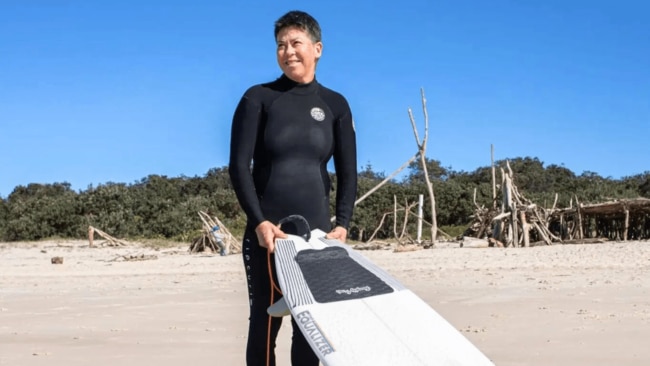
You write in your new book, Surf Like a Woman, about the financial and physical threats gay female competitors endured. Has that changed, and what’s your advice to anyone who feels pressure to conform?
It’s changed in the sense where it’s not so violent anymore, but it’s still well and truly there. Just look in the comments on social posts for any gay athletes and you’ll see never-ending homophobia. But my advice is be your total authentic self. While it was very hard to get sponsors because I didn’t fit the [hetero blonde] stereotype, in some ways I was lucky because I didn’t have to pretend to be someone I wasn’t – I could be as outspoken as I wanted, and in that way helped push our sport a bit further.
You’re now very happily settled in Brunswick Heads in the Byron Shire with your wife. Are folks there likely to see you out ripping in the water?
I still surf whenever possible – every day if I’m having a good week health-wise –usually here in Bruns and occasionally at The Pass in Byron Bay, although I hate the crowds there now. I still compete, especially in charity events, and I volunteer at the Adaptive Pro, which is for surfers with disabilities. My best friend has MS and I’m really passionate about making the beach accessible for everyone. I guess even now, I’m still fighting for the underdog.
More Coverage
Originally published as Champion surfer Pauline Menczer on homophobia in the sport



